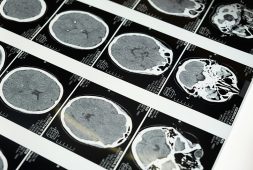
Recent research suggests that excessive abdominal organ fat may pose a potential risk for dementia. A fresh study, published in the journal Obesity, delved into the dynamics of fat distribution around vital abdominal organs like the pancreas and liver, particularly in middle-aged individuals with an elevated risk of Alzheimer’s disease.
The study unveiled a noteworthy correlation between heightened levels of fat specifically around the pancreas and adverse impacts on cognitive function and brain volume, specifically in men. Intriguingly, this association wasn’t observed in women participating in the study.
One possible mechanism behind this correlation could be the influence of pancreatic fat on insulin production. Speculatively, increased pancreatic fat might interfere with insulin production, which in turn could impact brain function negatively. However, this is merely a hypothesis, and further in-depth research is imperative to substantiate this claim.
In essence, this research sheds light on the intricate interplay between abdominal fat distribution and cognitive health, particularly in men, prompting the need for more extensive studies to unravel the underlying mechanisms and potential gender-specific differences.
New research published in the journal Obesity suggests that middle-aged men with a family history of Alzheimer’s disease may experience lower cognitive function and reduced brain volume if they have higher levels of fat in their pancreas and liver. These findings support prior research indicating a potential link between midlife obesity, metabolic disorders like type 2 diabetes, and an elevated risk of dementia and accelerated brain aging.
“We think of dementia and cognitive decline with old age, but we’re showing that already in midlife there is a relationship between such a risk factor as abdominal organ fat and cognitive function and brain volumes,” says study author Michal Schnaider Beeri, PhD. She is the director of the Herbert and Jacqueline Krieger Klein Alzheimer’s Research Center at Rutgers Brain Health Institute in New Jersey.
Men in the Study Had More Pancreatic Fat
In their study, Dr. Beeri and her team meticulously chose 204 adult participants who are children of individuals affected by Alzheimer’s disease. These individuals, aged between 40 and 65, with a majority being women, were subjected to comprehensive assessments.
The researchers employed abdominal magnetic resonance imaging to precisely measure fat accumulation in critical areas such as the pancreas, liver, and abdomen, alongside evaluating brain volumes. Additionally, the participants underwent a battery of cognitive tests encompassing memory, language, and visual attention.
The findings of the study illuminated a significant correlation between increased pancreatic fat and diminished cognitive abilities, as well as reduced brain volume, particularly among middle-aged men with a high genetic predisposition to Alzheimer’s disease. Interestingly, this association wasn’t observed among females. Dr. Beeri suggests that this disparity might hint at a potential sex-specific relationship between different types of abdominal fat distribution and brain health. This underscores the complexity of Alzheimer’s disease and the importance of considering diverse factors, including gender, in understanding its pathophysiology.
“We don’t know why the association was stronger in men, but they had higher levels of pancreatic fat than women,” she said.
“Theoretically, a man’s pancreas may be less functional and the brain might be more affected,” Beeri speculated. She also stressed that the results show a relationship but do not prove that pancreatic fat is the culprit of the problems linked to memory and thinking.
Yuko Har, PhD, the Director of Aging and Alzheimer’s Prevention at the Alzheimer’s Drug Discovery Foundation (ADDF), highlights the detrimental effects of excess fat in the pancreas. This condition can result in reduced insulin secretion, a pivotal hormone in facilitating the transfer of glucose from the bloodstream to energy-demanding cells, notably neurons in the brain.
“Too much pancreatic fat can also lead to insulin resistance, which can result in type 2 diabetes,” Dr. Hara, who was part of the study made, said. “Type 2 diabetes is a major risk factor for dementia. Type 2 diabetes and Alzheimer’s disease share several characteristics, such as impaired insulin signaling and oxidative stress.”
BMI Not Always be the Best Way to Assess Obesity-Related Cognitive Risk
According to the Alzheimer’s Society, there is an estimated 30% increase in the risk of dementia later in life due to obesity between the ages of 35 and 65.
Traditionally, body mass index (BMI) has been the go-to metric for identifying obesity. However, this study challenges the reliance on BMI alone to assess the cognitive risks associated with obesity.
Instead, the findings propose that evaluating fat percentage in particular organs or tissues might offer a more accurate indicator of an individual’s susceptibility to dementia. This suggests a shift towards more nuanced and targeted approaches in understanding the relationship between obesity and cognitive decline.
Study Results Limited to Offspring Those Diagnosed with Alzheimer’s
Heather Snyder, PhD, vice president of medical and scientific relations for the Alzheimer’s Association, emphasizes that the findings of the study, which focused on middle-aged individuals with parents living with Alzheimer’s, should not be generalized to all middle-aged adults.
“Future studies are needed to replicate and confirm these results with larger and more representative study groups,” Dr. Snyder, who was also not part of the recent research, said.
How Everyone Can Promote Brain Health
According to Hara, although assessing abdominal organ fat percentage isn’t typically done in routine clinical practice, it’s evident that managing metabolic health risk factors—like obesity, type 2 diabetes, and physical inactivity—is crucial for preserving brain health and preventing dementia.
“There are many ways to improve metabolic health by increasing physical activity, managing chronic conditions such as type 2 diabetes and hypertension, and eating a brain-healthy diet, such as the Mediterranean diet,” she stated.



